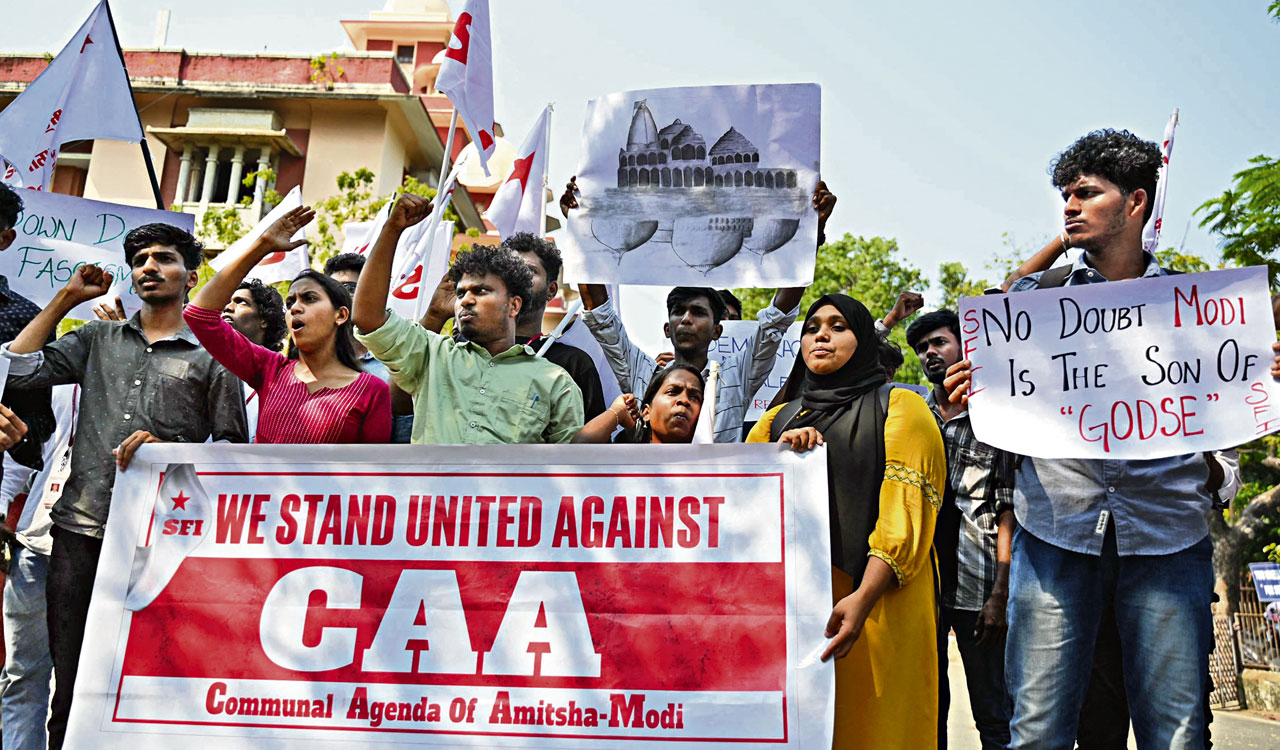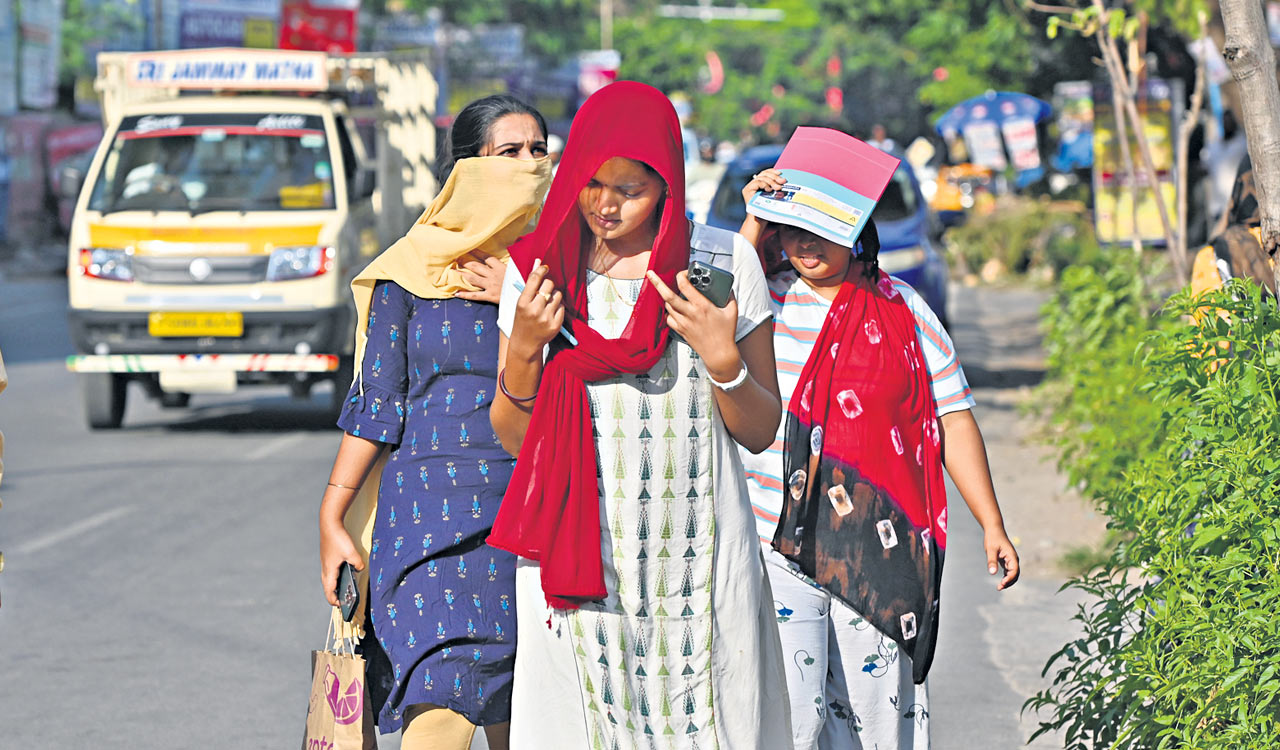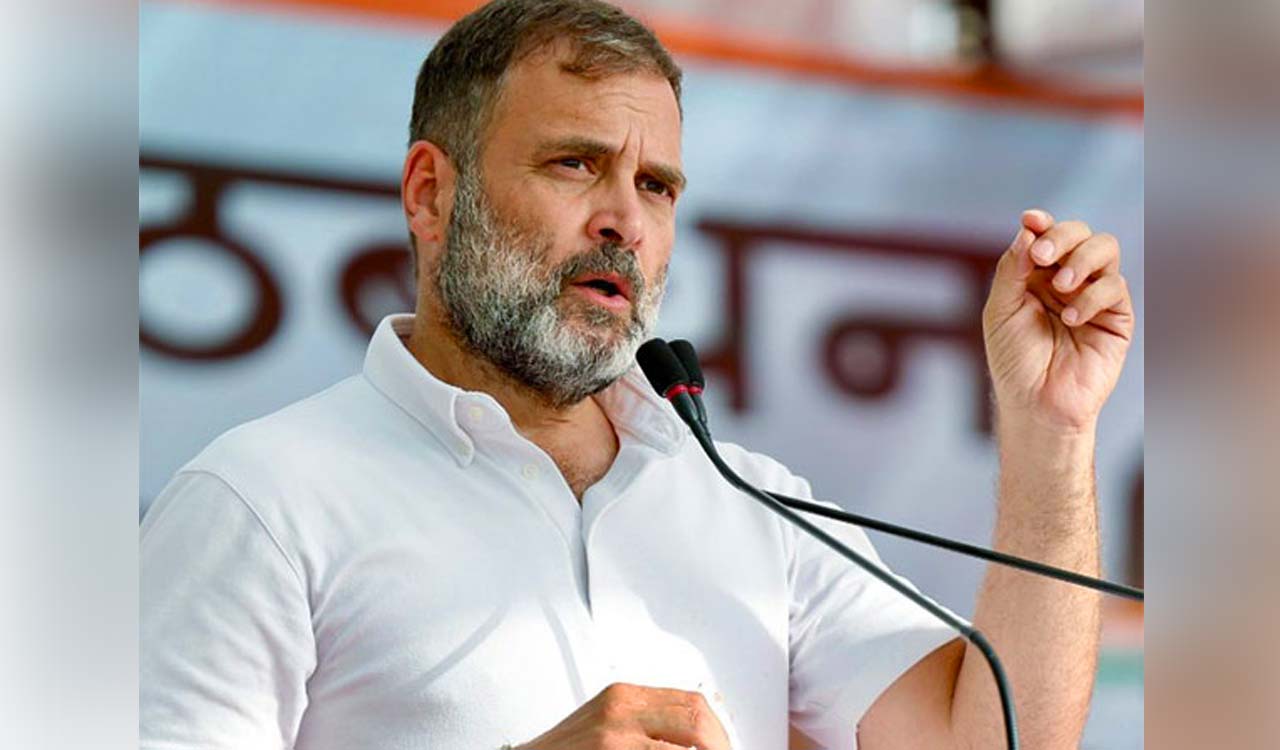
It is a settled principle of law that Article 14 of the Constitution applies to non-citizens as well
Published Date – 13 March 2024, 11:45 PM

By Kushank Sindhu
The Government of India has finally notified the rules under the Citizenship Act, 1955, [“the 1955 Act”] as amended by the Citizenship (Amendment) Act, 2019 (“the 2019 Amendment”). The 2019 Amendment was published in the Gazette of India on December 12, 2019. More than four years thereafter, the Government of India has finally brought into effect the rules which would implement the amended provisions introduced in the Citizenship Act, 1955, through the 2019 Amendment.
Much has been discussed and critiqued regarding the provisions of the 2019 Amendment. From a plain reading of the 2019 Amendment, it appears that certain classes of individuals belonging to Hindu, Sikh, Buddhist, Jain, Parsi or Christian community from Afghanistan, Bangladesh or Pakistan who entered India would not be treated as ‘illegal migrant’ under the Citizenship Act, 1955. The Central government may grant a certificate of registration or certificate of naturalisation to these individuals.
Subject to the fulfilment of the conditions mentioned, the person who is granted the certificate shall be deemed to be a citizen of India from the date of his entry into India. If the citizenship is granted, any legal proceeding pending against the individual in respect of illegal migration or citizenship shall stand abated. The aggregate period of residence or service of the Government of India as required has been reduced for the above-mentioned group of individuals from “not less than eleven years” to “not less than five years”.
Several Criticisms
Despite the rather straightforward provisions of the legislation, there have been several criticisms against the amendment, which have ranged from thought-provoking to outright bizarre.
Some critics have argued that the 2019 Amendment does not consider other persecuted minorities in the countries subject to it. Others feel that the 2019 Amendment is in some way detrimental to the minorities existing in India. Some feel that the citizenship status of Indians may be negatively impacted.
The Statement of Objects and Reasons which was part of the Bill introduced in Parliament (which was later passed as the 2019 Amendment) clearly describes the unique circumstances under which the legislation was being brought out. It states that the constitutions of Pakistan, Afghanistan and Bangladesh provide for a specific state religion. Resultantly, many of the persons belonging to the communities mentioned above faced persecution on grounds of religion in those countries where the right to practice, profess and propagate their religion had been obstructed and restricted. These persons had fled to India to seek shelter and continued to stay. Because of entering India without travel documents or if the validity of their documents had expired, they were regarded as “illegal migrants” and ineligible to apply for citizenship under the Citizenship Act, 1955.
Given the above, surely the duty of the government to undertake affirmative action in respect of minorities cannot be ignored.
The Facts
The argument built on the premise of exclusion ignores the fact that the Government of India has the right to enact laws for certain categories of foreigners as per the demands of the situation. It is not necessary for any country to have agreements in place or legislative enactments, uniformly, for all countries across the world.
It is a settled principle of law that Article 14 of the Constitution of India applies to non-citizens as well. Principles of natural justice and non-arbitrariness are essential facets of Article 14. The 2019 Amendment provides the mechanism for the applications to be processed through a committee which has been especially formulated in this respect. The Principles of Natural Justice should be observed by the committee hearing the requests and considering the applications made under the 2019 Amendment.
When the legislation focuses on a special category of communities who have come from outside India, bringing the discussion of other minorities already in India while analysing the 2019 Amendment appears to be irrelevant. The 2019 Amendment does not extend to the minorities already in India. No one can say that minorities already in India do not need protection or emancipation through the law but merely because they are not included in this legislation which covers minorities outside of India cannot necessarily mean that they have been deliberately left outside the Executive’s scheme of things.
The Government of India has also clarified that the 2019 Amendment has nothing to do with the deportation of foreigners in India.
The legislation is not a free ticket for all kinds of migration in perpetuity. The 2019 Amendment does not per se provide for fresh migration or migration in the future. There are safeguards in place. The cut-off date of entry to India for being covered by the 2019 Amendment is December 31, 2014. Belonging to the identified communities would not be the only qualification for being covered by the 2019 Amendment. The person should also have been exempted by the Central government from the applicability of the provisions of the Passport (Entry into India) Act, 1920, or the Foreigners Act, 1946, as mentioned.
Protecting Tribals
One aspect which is often ignored is the fact that the 2019 Amendment provides special protections for tribal areas by not applying the provisions therein to the tribal areas of Assam, Meghalaya, Mizoram or Tripura as included in the Sixth Schedule of the Constitution and the area covered under “the Inner Line” notified under the Bengal Eastern Frontier Regulation, 1873.
Neither the 2019 Amendment nor the rules framed thereunder do anything to affect the citizenship status of existing Indian citizens.
Necessary Pre-requisite
Interestingly, it isn’t as though the 2019 Amendment (or its 2016 precursor) was a sudden endeavour of the Central government. The Central government had in 2015 and 2016 exempted the above migrants from adverse penal consequences of certain litigation while also subsequently making them eligible for long-term visa to stay in India. Seen in this context, the 2019 Amendment may be viewed as a logical sequel to the above actions of the Central government in 2015 and 2016. It cannot be overemphasised that living in India with the legal recognition of full citizenship would enable these migrants who are already part of the Indian system to contribute more fully to the working of the economy and the development of the country.
The legal recognition of individuals as a citizen of any country is a necessary pre-requisite of enabling the individual to contribute to the society of that country. As citizens, these individuals would work and live with a sense of belonging. Citizenship for these migrants should be not just about legal status and capacity but also their self-respect and identity as members of this great country to which we all belong.
Source | Powered by Yes Mom Hosting







